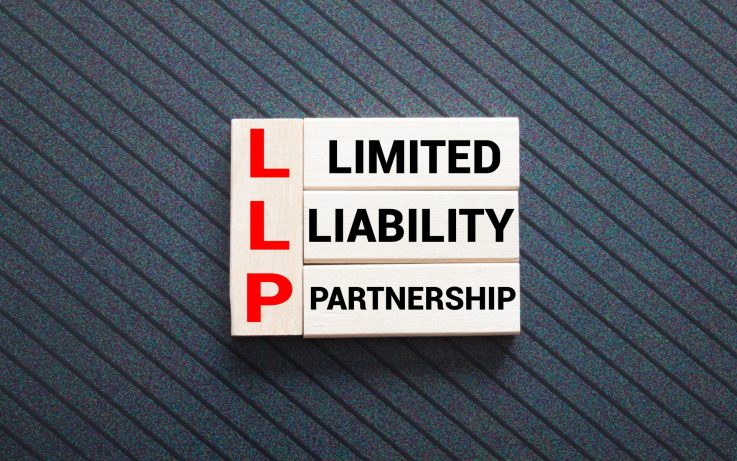Determining your UK tax residency

Life in the UK provides comfortable, secure and safe conditions, so it is no coincidence that foreigners are so eager to move to the United Kingdom for good. The British government offers prosperity to their citizens, including but not limited to offering a favourable taxation system. However, this system, although much clearer after changes in 2013, still, at first glance, remains quite complex. To pay the correct tax and take advantage of all its benefits, one must understand all its basic concepts and mechanisms, as well as the nuances.
One of the key things you should do after moving to the UK is to determine your tax status, whether you are a resident or not.
How to determine your tax status in UK?
Every year, everyone who has been living in Great Britain for a long time and everyone who has recently arrived here must determine their tax status. Since 2013, the United Kingdom has introduced the Statutory Residence Test. It consists of several questions; it helps determine the UK tax residency status.
Non-resident status is granted automatically if at least one of the following conditions is met:
- The person has lived in the UK for one tax year or more in the previous three tax years and has spent fewer than 16 days in the UK in the current tax year;
- The person has not lived in Great Britain for the previous three tax years and has spent fewer than 46 days here in the current tax year;
- The person has worked full-time overseas in the current tax year and has spent fewer than 91 days in the UK.
If you answer “YES” to any of the following questions, this means you are a UK tax resident:
- In total, have you spent more than 183 days in the UK in the current tax year?
- Do you have or have you had a home in Great Britain and no overseas home?
- Have you worked full-time in the UK for any period of 365 days, with no significant break from the UK work?
Sufficient Ties Test
If you answer “No” to all the above questions, you should go through the third round of questions, the Sufficient Ties Test. It establishes the number of points that tie a person to the UK. The answers to this test and whether or not a person has been resident in the previous 3 years will determine the number of days they will need to spend in England in the current year to become a resident. Types of possible ties:
- If at least one member of the family has English residence status: official or common-law spouse, partner, or children below 18 years of age;
- If you have a residential property in the UK which you could use continuously for more than 91 days and have spent at least one night there;
- If staying in the UK you work for any employer in the world for more than 40 days during the annual tax period, with at least 3 hours of work each day;
- If you were in Great Britain for more than 90 days in one of the previous two tax years;
- If you spent more nights in the UK than in any other country in the world.
Interpretation of the test results
The more ties a person has to the UK, the fewer days they will need to spend in the UK to become a tax resident. If the number of “Yes” answers is insufficient, the person is defined as a non-resident.
What does tax residence status mean?
If a person is considered a tax resident, they automatically become liable to declare all income received during the reporting tax year in the UK which starts from 06 April in the current year and ends on 05 April the following year. Tax returns should be submitted by January 31 of the year that follows the reporting year.
A resident must report all income that they obtained during this period, even if it was earned in any other country and the money was not transferred to the UK. All types of income must be reported, while inheritance and gifts are not considered as income.
If you are domiciled in the UK
Paying due tax also becomes the resident’s liability. The amount depends on another important status, whether the person is domiciled in the UK or not. There are 3 statuses in this respect, each attracting a certain amount of income tax.
- UK domicile
Domicile belongs to the person’s homeland. It is most often assigned automatically at birth based on the country of origin of the person and their parents. However, this status can be changed at one’s own will throughout life. Even if you are a resident of the United Kingdom, you do not have to become a British domicile, as to obtain it, you must be prepared to terminate all relations with your former home country.
A person who is a UK resident and domicile is obliged not only to report all earned income in a tax return but also to pay income tax to the British government on their worldwide income.
- Non-UK domicile
If a person’s domicile does not belong to the UK, they are non-domiciled in the UK. This is convenient for some tax residents, as they get to use a special tax basis to pay income tax. The most popular tax basis is remittance.
- Deemed domicile in the UK
After changes to English tax legislation in April 2017, a resident can automatically be awarded a new type of status – deemed domicile. In this case, it is no longer possible to use the special remittance tax basis and the person becomes liable to pay taxes on all income, regardless of their country of origin and source. After a person with the deemed domicile status passes away, all of their worldwide estate will be subject to 40% UK inheritance tax (except for the first £325,000).
Deemed domicile status is granted if a person has been a resident in the UK for 15 out of 20 preceding years. In this case, the new tax conditions will apply from the 16th year onwards.
Remittance as special tax basis in England
The remittance principle is only available to those individuals who have a non-UK domicile status. Only those funds are considered for income tax purposes that were:
- Earned directly in the United Kingdom;
- Earned outside the UK and transferred into the UK.
Other foreign income is disregarded and is only taxed in the country of origin.
Applying remittance
Remittance is not applied automatically. This means that once a year if a resident wants to use this tax basis, they must notify HMRC by filling in a tax return. The deadline for its submission is January 31 of the year that follows the reporting year. The remittance cannot be used every year, but only when necessary.
It is important to note that the tax-free allowance of £12,570 cannot be applied when switching to the remittance basis. Therefore, it is worth calculating the costs and benefits of this decision before applying for remittance.
Moreover, after a few years of tax residence, there is a compulsory annual payment for using remittance. If a person has been a resident for 7 out of the last 9 years the fee is £30,000, and for 12 out of 14 years, the fee is twice as much.
UK taxation: key points
Sometimes foreigners believe that their tax residence status depends on the type of visa used to enter the country. However, this is a misconception, and there is no direct dependence. Each case is considered individually, and he or she is given taxation status based on the above-mentioned conditions. It is necessary to identify your status correctly to avoid mistakes while completing tax returns and paying taxes.
Each tax year is different, i.e. the residence status and circumstances should be reviewed. However, the previous year’s numbers may affect the current year’s residence status.
Taxation in the United Kingdom is a complex and important topic that everyone who comes to live or work here needs to understand. This article gives the basic aspects and general principles. For more details as well as examples of special cases and qualified assistance with the paperwork, please contact a tax advisor. They will help you determine your tax status, fill in relevant forms, and determine how much you need to pay and which benefits you are eligible for. Consultation with a qualified specialist will help you save time, money and stress, as well as resolve all matters related to UK taxation.
FAQ about UK residence status
Is it possible to become a UK resident after the start of the UK tax year?
Yes, if a person moves permanently to the UK, the date on which resident status is applied may be, for example, the date on which they start working in the UK, or the date on which they start renting a house or a flat, or any other factor.
Does a non-resident have to pay income tax in the UK?
Any income earned in the United Kingdom is taxable regardless of a person’s status. Determining the status affects the application of benefits, which can, on the one hand, give some relief, and, on the other hand, on the contrary, increase the tax burden. For example, if a non-resident uses the remittance basis, they then lose their personal allowance of £12,570 tax-free income. It is therefore worth calculating whether any tax optimisation mechanism is suitable before applying it.
Does a resident need to declare tax if their only income is from one employment?
If a person does not have any rental income, or a savings account and has no other additional sources of income except for official employment, then it is an employer who submits tax data for such an employee and automatically withholds income tax from their salary, transferring it to the UK Treasury. Under these circumstances, the resident does not need to do anything else until their source of income changes or they get additional income. However, if your annual earnings exceed £100,000, you must file an annual tax return.







